Understanding the Difference Between Addiction and Physical Dependence
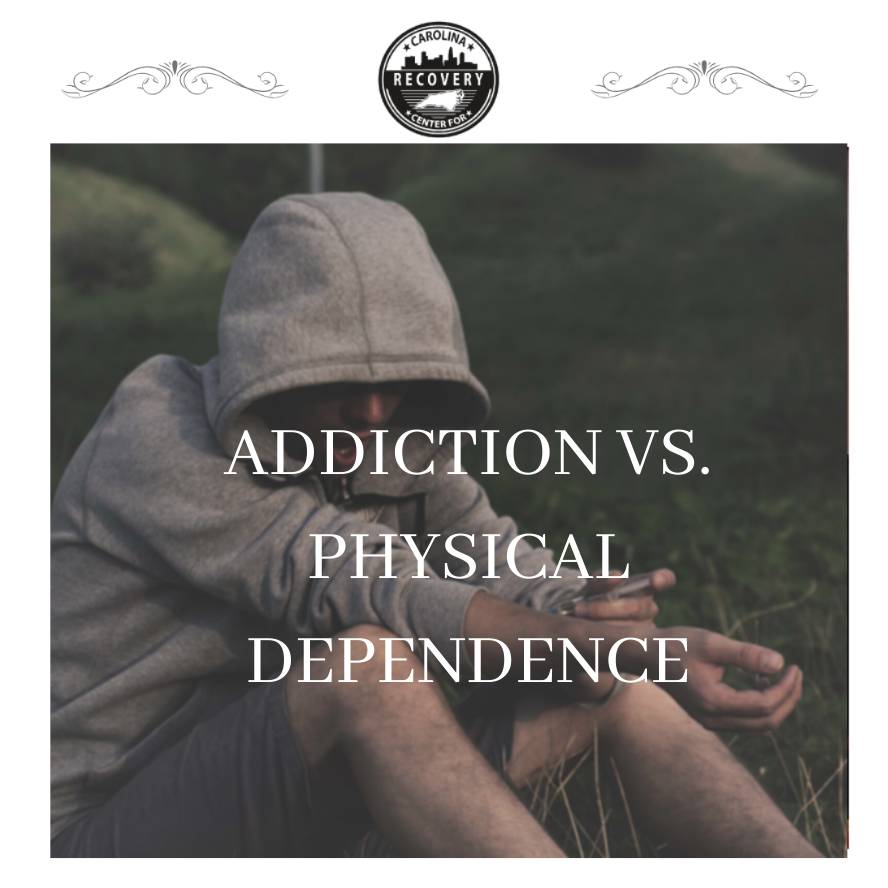
Medically Verified: 2/1/24
Medical Reviewer
Chief Editor

All of the information on this page has been reviewed and verified by a certified addiction professional.
Understanding the Difference Between Addiction and Dependence
If you’ve ever done any research online regarding substance abuse, you have probably seen the words addiction and dependence and the difference between these two words can be difficult to understand. Some organizations use different definitions, while others use the words interchangeably. The lack of consistency often contributes to the confusion.
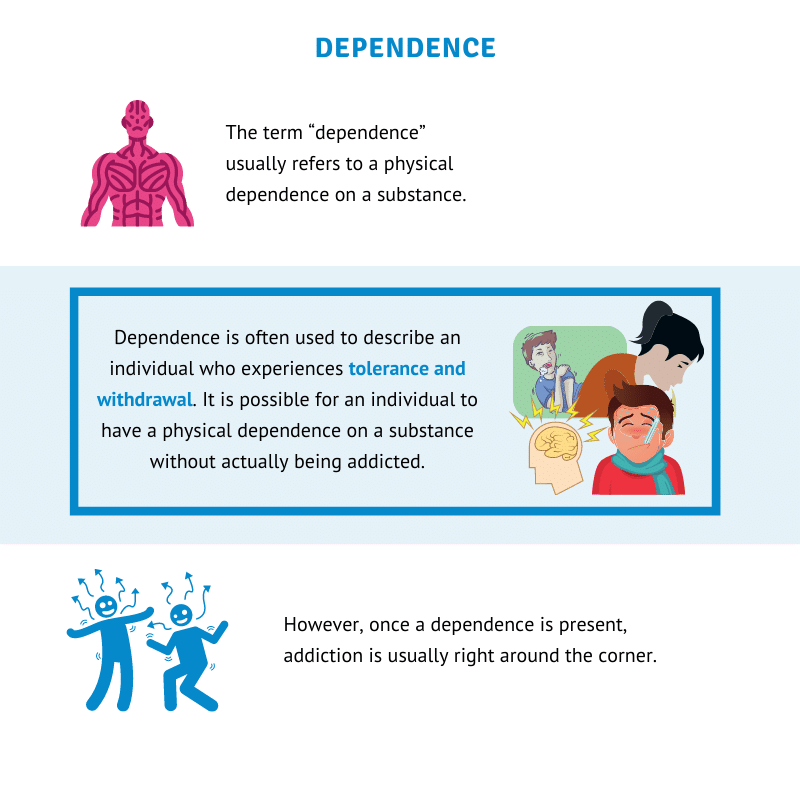
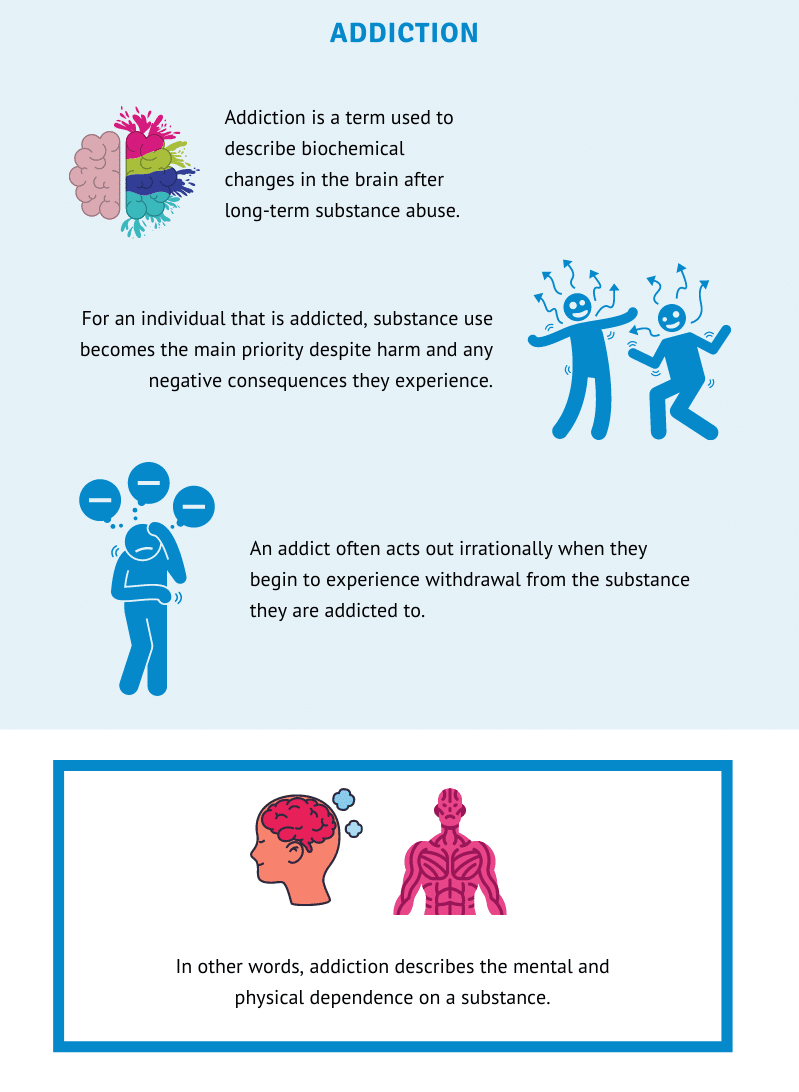
Physical Dependence
The National Institute on Drug Abuse (NIDA) defines dependence as “a state in which an organism functions normally only in the presence of a drug.” People who are physically dependent on drugs or alcohol experience symptoms of physical tolerance and withdrawal. Physical dependence begins with tolerance. Tolerance describes the process in which the body adapts to a certain amount of the specific substance and requires a higher amount over time to feel the effects. Individuals who use high amounts of a particular substance face the risk of becoming physically dependent.
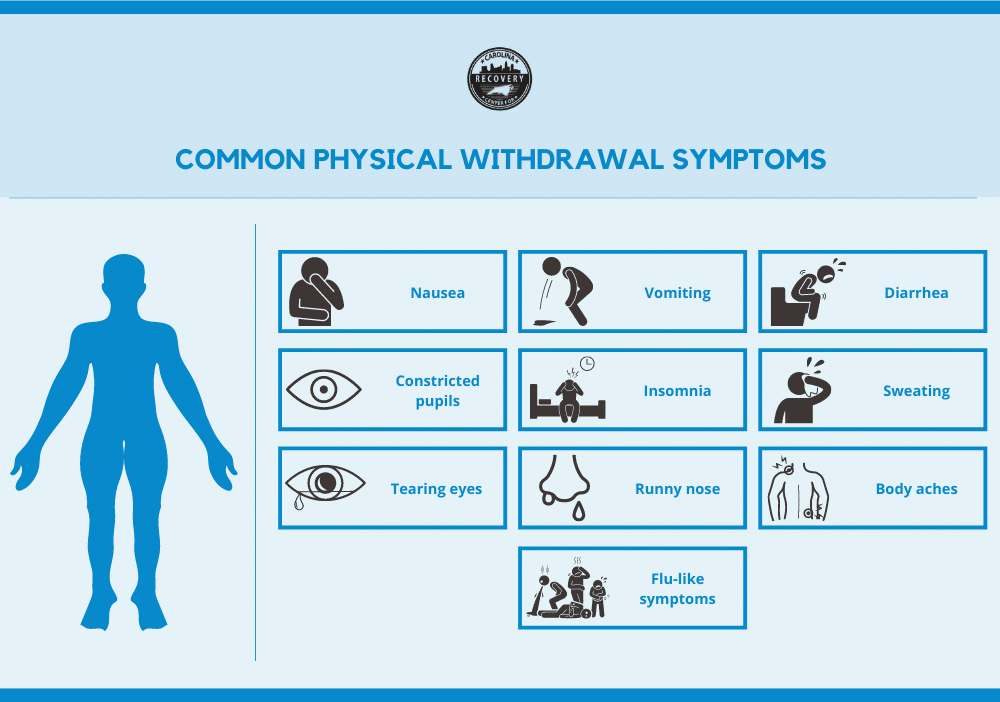
Common physical withdrawal symptoms include:
- Nausea
- Vomiting
- Diarrhea
- Dilated/Constricted pupils
- Insomnia
- Sweating
- Tearing eyes
- Runny Nose
- Achy Body
- Flu-Like Symptoms
Addiction
Addiction is defined as compulsive substance abuse despite negative consequences. Unlike dependence, addiction does not affect every individual who is repeatedly exposed to an addictive substance. Often times, genetic and environmental factors contribute to the likelihood of addiction risks. An individual who is addicted will experience both mental and physical symptoms correlated with substance abuse.
Mental dependence is when chronic substance abuse becomes an automatic response to an event or feeling. These are often described as “triggers”. Triggers often set off biochemical changes within the brain of an individual that strongly influence and provoke addictive behavior.
Common symptoms of triggers may include:
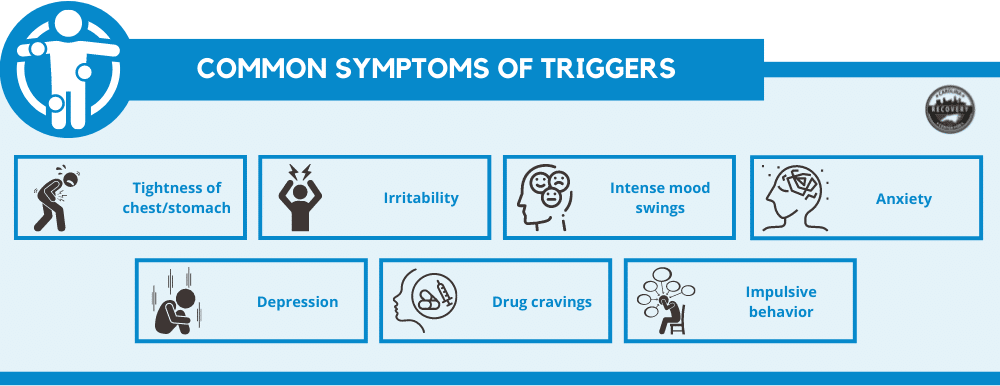
- Tightness of chest/stomach
- Irritability
- Intense Mood Swings
- Anxiety
- Depression
- Intense desire/need to use the substance
- Erratic/Impulsive behaviors
Addiction vs. Dependence
The American Psychiatric Association (APA) used to divide the term substance use disorder into two distinct categories: abuse and dependence. The term substance use disorder is the medical term for addiction. Abuse was often described as a mild form of addiction, and dependence was a moderate or more severe form of addiction. This particular terminology became problematic in regards to biology because dependence is used to describe a physical adaptation to a substance. Today, the APA uses the term substance use disorder and divides the disorder into mild, moderate, or severe – in hopes of properly categorizing the severity of an addiction.
According to the National Institute on Drug Abuse (NIH), different parts of the brain are responsible for addiction and dependence. Therefore, an individual may be dependent on a substance, without actually being addicted. This is especially true for individuals who are treating chronic medical ailments with controlled substances. For example, an individual may be physically dependent and withdrawal if they stop taking the drug, but most patients will not experience the compulsive behaviors of an addict.
Determining Whether You’re Dependent or Addicted
Determining if you are dependent on a substance is not difficult. If you stop taking the substance, you will experience withdrawal symptoms. However, there is not an easy answer to determining if you are addicted to drugs or alcohol. For instance, if you are prescribed an addictive medication for a chronic medical issue you will most likely experience withdrawal symptoms. However, you are not considered addicted if you are not compulsively seeking prescription medication despite negative consequences and harm.
A common way of determining you are addicted to drugs or alcohol is by analyzing your behaviors. If your substance use is harming your relationships, causing problems at work or school, getting you into legal trouble, or negatively affecting your responsibilities – you may be addicted. If you find yourself craving the substance but you can prevent yourself from using the substance, you are most likely not addicted. If you believe you or a loved one may have a problem with drugs or alcohol, it is important that you seek professional help. An addiction specialist can evaluate you or your loved one and provide substance abuse treatment and help you to overcome your condition.

